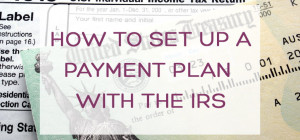 Your friend’s father just had his knee replacement surgery and your friend has burnt a hole in his pocket paying the hospital bills. The bills have a natural tendency to make anyone or rather everyone worried. The sky rocketing medical bills seem to be increasing exponentially with time. The Income Tax Act of 1961 has made provisions to reduce the cost burden and aid in tax deductions under section 80D.Section 80D exemptions help you reduce your tax burden over and above the exemptions available under section 80C. Read on to understand how to use these exemptions to your benefit.
Your friend’s father just had his knee replacement surgery and your friend has burnt a hole in his pocket paying the hospital bills. The bills have a natural tendency to make anyone or rather everyone worried. The sky rocketing medical bills seem to be increasing exponentially with time. The Income Tax Act of 1961 has made provisions to reduce the cost burden and aid in tax deductions under section 80D.Section 80D exemptions help you reduce your tax burden over and above the exemptions available under section 80C. Read on to understand how to use these exemptions to your benefit.
Save through insurance premium payment for family members: Section 80D allows for tax deduction from the total taxable income on payment of premiums towards medical insurance for immediate family members (dependants) like – parents, spouse and children. The premiums for the medical insurance can be paid by an individual or a Hindu Undivided Family (HUF).
The maximum amount permissible as tax exemption under this section is Rs.25000/- for the whole family. If you are claiming tax deductions for payment of medical insurance premiums for your parents who are senior citizens, this maximum amount increases to Rs.30000/-each year. However, do note that the premium payment has to be made in any mode other than cash for you to claim these deductions.
For uninsured super senior citizens, i.e, individuals over 80 years of age, medical expenditure up to Rs 30000/- is allowed as exemption under section 80D. However, total deductions for health insurance premiums and expenditure remains capped at Rs. 30000/- for parents.
Part payment of premium for claiming deduction is allowed. For example, suppose your parents contribute 25% of their health insurance premium and you pay the balance 75% of their premium. In such a case, you can avail the deduction for the amount contributed by you and your parents can also avail deduction for their contribution.
Save taxes by undergoing preventive health check-ups: Section 80D allows you to seek a tax deduction for the expense of your health check-ups. The upper limit permissible for this is Rs 5000/-. You may include your parents,spouse and children for seeking deduction under this. However, the aggregate amount for seeking such deductions is capped at Rs 5000/. The amount is deducted from your gross total income for the year. This further reduces your tax liability.
A HUF can claim deductions under 80D by payment of medical insurance premiums for all family members.
Like any other insurance premium, service tax is also charged on the health insurance premium. You have to pay 14% service tax on health insurance premium along with the applicable cess.
Before concluding, let us take an example for better understanding:
Say you and your spouse are employed by corporate firms and both of you have mediclaim coverage through your respective companies’ group insurance policies. You can still purchase additional medical insurance for your family. Suppose, you purchase a family floater plan wherein you pay Rs 15,000 as premium and your spouse buys a health insurance cover for your parents who are senior citizens for Rs 32,000. .
In such a situation, you can claim a tax deduction for the entire premium payment of Rs15,000/-, unfortunately, your spouse would not be able to claim any tax deduction, as 80D rules do not give any deduction for health insurance premium payments of in-laws.







